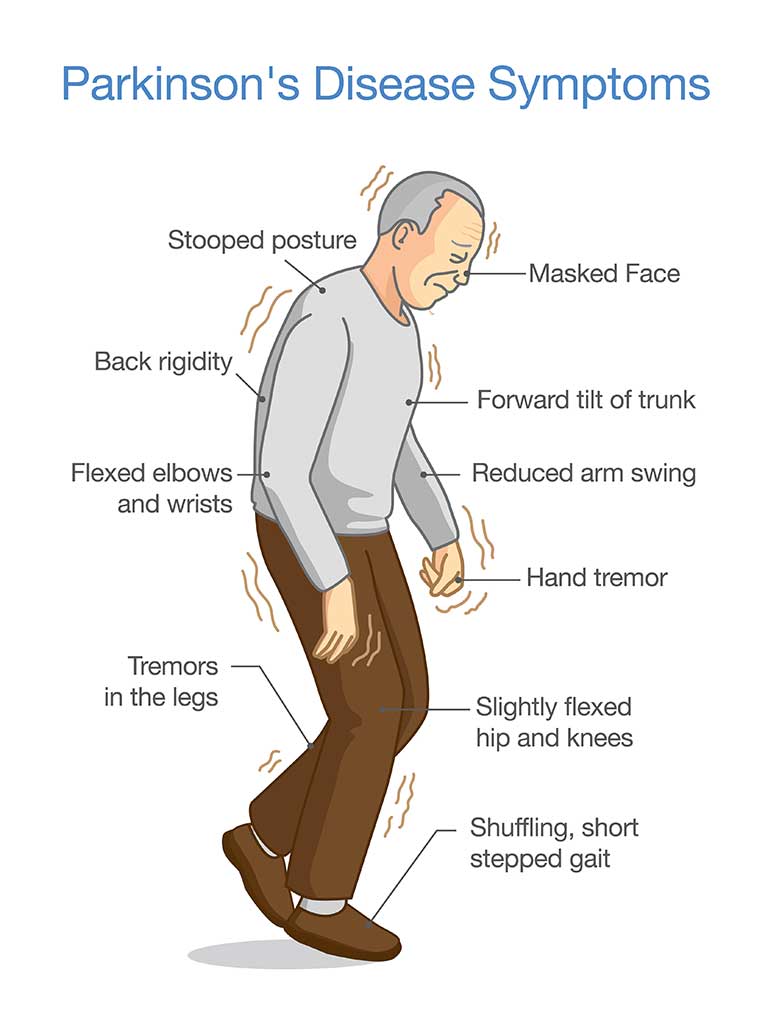Parkinson’s Disease is a disease that typically affects older adults above the age of 60. In fact, around 1% of people above 60 years old, and 5% of people above 85 years old have been diagnosed with this disease. While those numbers may seem low, it’s good to keep a lookout and ensure that your loved ones are not affected by Parkinson’s Disease. In this article, we list everything you need to know about Parkinson’s Disease, from its symptoms and causes, as well as ways to prevent it.
What is Parkinson’s Disease?
Parkinson’s Disease is a brain and progressive nervous system disorder that causes a number of involuntary body movements. These movements consist of shaking, stiffness, imbalance, and even difficulty with walking. As with many ailments, Parkinson’s Disease is one that gets progressively worse over time. In the early stages, your loved ones may not display overt symptoms, though their speech may start to slur or become softer. Since Parkinson’s Disease is a progressive disorder, this means that your loved ones should seek medical attention as early as possible to slow down more serious effects, which can severely hinder their everyday life
Symptoms of Parkinson’s Disease
When it comes to Parkinson’s Disease, the symptoms differ for everyone. However, the general consensus is that symptoms begin on one side of the body before gradually affecting both sides. As mentioned above, signs may go unnoticed or are mild during the early stages, so it’s recommended to keep an eye out for your loved ones.
- Loss of voluntary movements: Your loved ones may find it increasingly difficult to perform simple body movements, such as blinking, swinging their arms, and even smiling.
- Loss of balance: Aside from having a stooped posture, your loved ones can face challenges in balancing themselves. This is particularly dangerous as a lack of balance can cause your loved ones to fall easily, which can lead to other severe injuries, like brain damage.
- Muscle stiffness: Tight muscles can cause much discomfort to your loved ones, as the muscles are unable to relax normally. In some cases, the stiffness can even result in painful cramps.
- Slower reaction: This is the most common symptom faced by people with Parkinson’s Disease. Your loved ones will find themselves taking much longer to complete once simple and familiar tasks. Walking will be slower, and your loved ones may have a harder time getting out of a chair.
Causes of Parkinson’s Disease
Parkinson’s Disease occurs when the neurons in our brains break down. These neurons are essential to our body’s functioning as they produce dopamine, a chemical that helps in brain activity and overall body movement. While the official causes of Parkinson’s Disease are not yet known, research has shown that some of these factors do play a part:
- Genes: Medical professionals and scientists have discovered that some genetic mutations can lead to Parkinson’s Disease. However, cases where multiple family members are diagnosed with Parkinson’s Disease are extremely rare, and there is not much evidence to proves that Parkinson’s Disease is hereditary.
- Environmental factors: Some experts believe that exposure to certain chemicals in their daily environment can result in Parkinson’s Disease. These chemicals can be farming chemicals, such as pesticides and herbicides.
Prevention of Parkinson’s Disease
Since we do not know the causes of Parkinson’s Disease, there is conclusive way to prevent or slow down the onset of Parkinson’s Disease. However, recommendations to exercise more regularly and to consume less caffeine are typically promoted by doctors and scientists. If you have a loved one who has started displaying symptoms of Parkinson’s Disease, you should get them immediate medical attention. They may require the assistance of a dedicated team of professionals to monitor their health, which could be best achieved in a community living facility.







